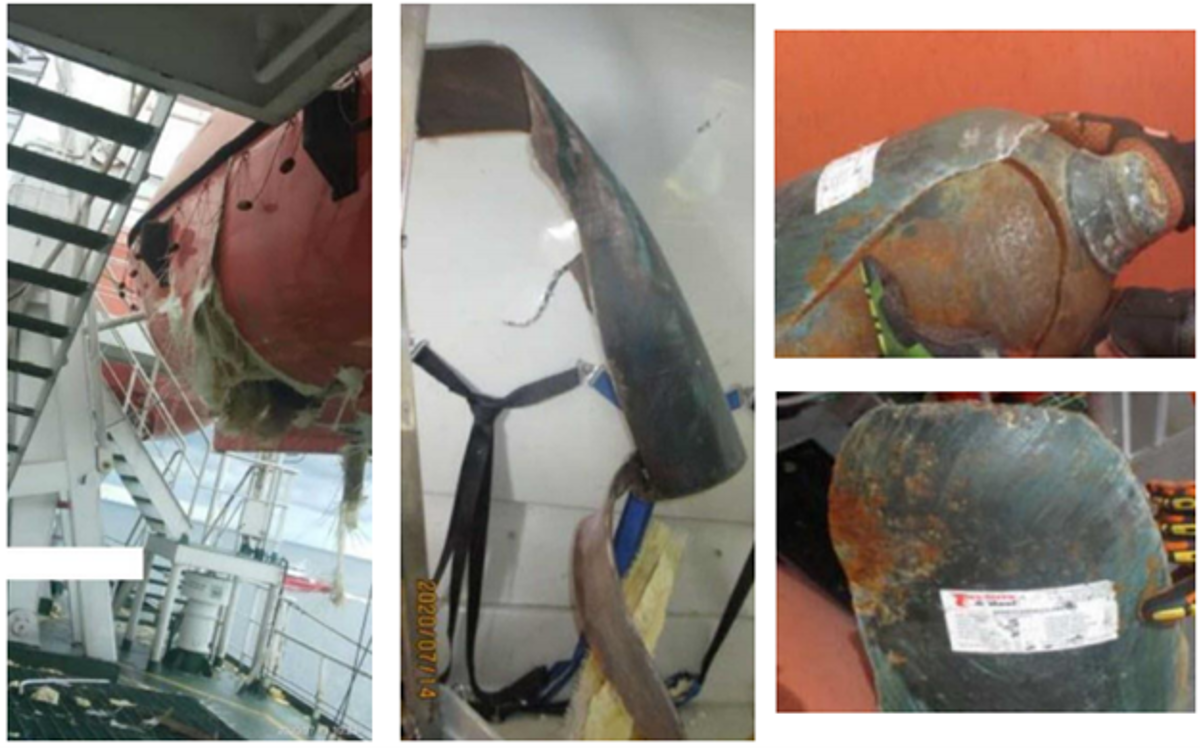MSF: Air cylinder failure in lifeboat
- Safety Flash
- Published on 17 March 2021
- Generated on 10 February 2026
- IMCA SF 08/21
- 2 minute read
Jump to:
Three crew members working near a lifeboat were injured by blast debris when an air cylinder fitted in the lifeboat blew up without warning.
What happened?
There was a structural failure of an air cylinder fitted in a lifeboat. It occurred without warning. No work had or was being conducted on or around the air cylinder. Three crew members working nearby were injured by the blast debris.
First aid treatment was provided onboard by the medic and they were then sent onshore that night for assessment by a local hospital, and later released.

What was the cause?
The MSF notes that investigation into this incident is currently ongoing. This event – which occurred in July 2020 – was first brought to IMCA’s attention last year. At that time there was insufficient information available to warrant its use in a Safety Flash. See here for the MSF Safety Alert 21-01.
Two preliminary suspected causes of the cylinder failure have been identified:
- Galvanic corrosion between the cylinder material and the metal support frame leading to a weakness in the cylinder wall.
- Cylinders submerged in bilge water for extended period leading to wall corrosion which could have then affected the integrity.
Actions
The MSF’s correspondent recommends that such cylinders are:
- Inspected annually for corrosion or wall damage by service providers.
- Hydrostatic [pressure] tested at a required interval of five years.
Related Safety Flashes
-
IMCA SF 27/18
14 December 2018
-
-
IMCA SF 21/18
17 September 2018
-
-
IMCA SF 12/16
6 May 2016
IMCA Safety Flashes summarise key safety matters and incidents, allowing lessons to be more easily learnt for the benefit of the entire offshore industry.
The effectiveness of the IMCA Safety Flash system depends on the industry sharing information and so avoiding repeat incidents. Incidents are classified according to IOGP's Life Saving Rules.
All information is anonymised or sanitised, as appropriate, and warnings for graphic content included where possible.
IMCA makes every effort to ensure both the accuracy and reliability of the information shared, but is not be liable for any guidance and/or recommendation and/or statement herein contained.
The information contained in this document does not fulfil or replace any individual's or Member's legal, regulatory or other duties or obligations in respect of their operations. Individuals and Members remain solely responsible for the safe, lawful and proper conduct of their operations.
Share your safety incidents with IMCA online. Sign-up to receive Safety Flashes straight to your email.